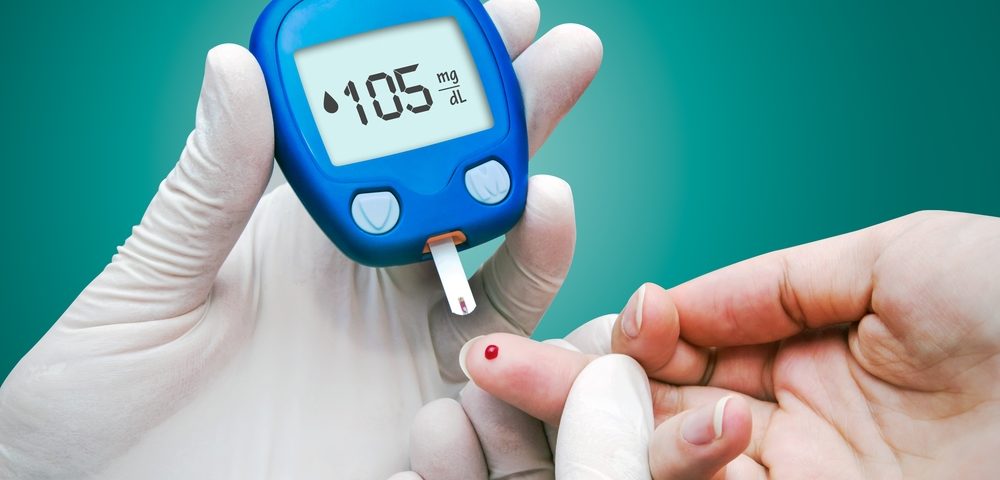Are You Increasing Your Diabetes Risks?
Do you know if you are at risk of developing diabetes? Because diabetes is a serious, chronic condition, it is important to be aware of the risk factors so that you can make every effort to prevent it from taking hold. So continue reading to learn about diabetes risks and to discover what you can do to stay as healthy as possible.
Type 1 Diabetes Risks
Unfortunately, the risk factors that are associated with type 1 diabetes are not understood as clearly as the risks for developing type 2 diabetes. However, experts do know that family history will certainly play a role in whether or not you end up with type 1 diabetes. And, in terms of other risks for this condition, experts believe that diseases of the pancreas, as well as certain infections, could also play a role as well.
Also, experts do know that the immune system, which is meant to protect your body from harm, ends up doing harm to the cells that produce insulin within the pancreas. By attacking and destroying those cells, the immune system causes you to have hardly any insulin, if any at all. As a result, the level of sugar within the bloodstream rises and you end up with type 1 diabetes.
It is also believed that type 1 diabetes might be the result of environmental factors and genetic susceptibility. This combination of diabetes risks might lead to the disease. However, when it comes to specific factors in this area, experts are still unclear, though they don’t think that weight plays a role in this disease process.
Note: anyone of any age can develop type 1 diabetes. However, this form of diabetes will more often develop either during childhood or during adolescence.
Type 2 Diabetes Risks
Diabetes risks are better understood when it comes to type 2 diabetes. In fact, experts have found that there are several factors that could cause you to become more susceptible to this condition.
Diabetes risks include:
- Having high blood pressure
- Leading a sedentary lifestyle
- Being overweight or obese
- Having high triglyceride levels
- Having low HDL cholesterol levels
- Having impaired glucose tolerance or insulin resistance
- Having polycystic ovary syndrome
- Having a family history of diabetes
Note: This type of diabetes is actually more common than type 1 diabetes. It, too, can occur at any age, but this one is also more likely to develop in individuals who are over the age of 40.
What Are the Symptoms of Diabetes?
In addition to having a clear understanding of diabetes risks, it is also really important to be aware of what the symptoms associated with diabetes are. If you know the symptoms, you can keep an eye out for them. And, if you begin experiencing them, you will know to contact your doctor for a checkup so that you can determine if you have diabetes or not.
According to Mayo Clinic, type 1 diabetes and type 2 diabetes can cause the same symptoms. Those symptoms include:
- Urinating frequently
- Experiencing an increase in your thirst
- Weight loss that is unexplained
- Feeling extremely hungry
- Fatigue
- Blurred vision
- Irritability
- Experiencing infections frequently (this could include vaginal infections, skin infections, and gum infections, as a few examples)
- Having sores that are slow to heal
- The presence of ketones in the urine (your doctor can diagnose this)
A Quick Look at Prediabetes
In addition to knowing about diabetes risks, it is also important to have a general understanding of prediabetes and what it is all about.
Basically, prediabetes might end up causing type 2 diabetes. It is characterized by elevated blood sugar that isn’t yet high enough to be diagnosed as diabetes.
Again, with type 2 diabetes, your body’s cells end up resistant to insulin, so the pancreas is no longer able to produce enough of it to battle with that resistance. Sugar ends up building up within the blood, rather than going into the cells, where it would normally be utilized for energy. You might not know that you are prediabetic, which is why seeing your doctor for blood tests on a regular basis can help you keep track of things like your blood sugar.
If you are prediabetic, your diabetes risk is higher, but there are steps that you can take to turn things around, and your doctor will be able to guide you in the right direction so that you hopefully do not end up with type 2 diabetes. Experts think that environmental factors and genetics can play a role, but if you are overweight, shedding those extra pounds might be all that you need to do to greatly reduce your risk.
What You Can Do to Help Yourself
When it comes to type 2 diabetes, in particular, you have more control over whether or not you end up developing this chronic condition. Taking care of your body and maintaining a healthy weight are often recommended as easy ways to keep this disease away.
In addition to leading a healthy lifestyle that doesn’t include smoking and drinking, you can also take steps to be more active. There are also many high quality diet pills that work on burning fat, reducing your appetite, and helping you maintain your weight or lose weight if you are overweight or obese.
Seeing your doctor at least once a year for a complete blood test is also a good way to keep track of your health. A blood test can tell you more about your blood sugar levels, your cholesterol level, and your triglyceride level. Spotting problems in their earliest stages will make it easier to bring your body back into a state of balance and health, thereby reducing diabetes risks.
Consider Using Diet Pills That Work with Exercise
To help keep your diabetes risk as low as possible, consider using diet pills that work with your exercise goals. Find options that will help you to stay energized enough to get up and move. Then use that energy to maximize your performance so you’ll burn the most fat during every exercise you complete.
In that sense, diet pills that help you to achieve and maintain focus and alertness can also be very helpful as they can support your performance while you do your workouts. If the product you choose also contains thermogenics and other types of clinically researched ingredients known for supporting the metabolism, then you’ll know you’re giving your body an advantage to get fitter, control your weight and reduce your diabetes risks.





